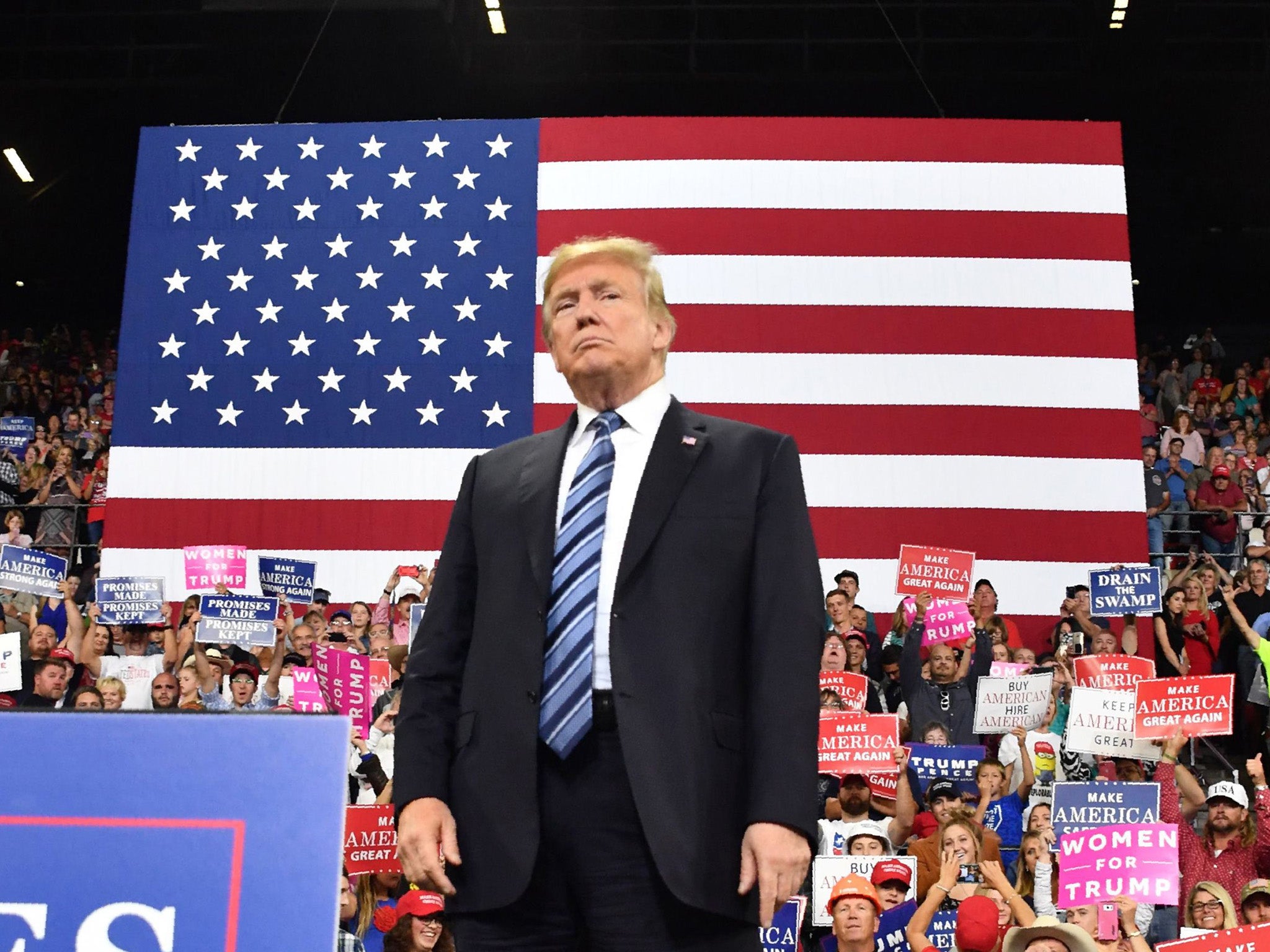Five things to consider about the US economy now it’s in the midst of a boom
The US economy has been thriving for some time under Donald Trump, and the good fortune doesn’t look set to end any time soon


Holidays are over, and it is back to business. Leave the UK and Europe aside for the moment – it’s all too opaque – and focus on the US. Will the booming US economy save the troubled Trump presidency?
That is the big question for the coming months. The contrast is extraordinary. US equities have been uncertain for the past weeks, but the run of economic data has been remarkably solid: strong growth, strong company profits, a solid jobs market, high consumer confidence, some rise in inflation but acceptable for now. US politics… well, I don’t think there is much to be added from London at this stage, except to note that while the economy remains strong a lot of Americans will continue to support the administration.
So focus on the economy: will it remain strong? Here are five things to look at.
First, the jobs market. If the US keeps cranking out more jobs, and if unemployment (at 3.9 per cent, it is already at its lowest for 18 years) keeps falling, then that must rank as a success story. The incumbent president would have been savaged if unemployment were rising, whether it were really his (or her) fault or not. So he must gain some points while the jobs boom continues.
Actually there is a puzzle here. Unemployment is already below what most people think is the sustainable level. If it falls by another 0.2 per cent, it will be lower than at any time since the late 1960s. That is an extraordinary achievement, though of course it is a trend that predates the Trump presidency. But it is also a puzzle: why is it so low? There are certainly many “discouraged workers”, people who have dropped out of the labour market, and certainly many people working for fewer hours than they would like. But a majority of part-timers are happy with their hours, and many full-timers would prefer to work fewer hours, so I’m not sure calculations that suggest there is a lot of slack in the labour market are helpful. What matters is whether a tight jobs market is pushing up wages.
That is the second thing to look for: pay. Hourly wages are up 2.9 per cent, this is the highest since the middle of 2009. Weekly wages are up 3.2 per cent. If the boom continues through the rest of this year, as I think it will, then the pressure on the Fed to crank up interest rates will be all the greater. By historical standards US interest rates are still low. That leads to the next point: how will the US borrowers – corporations, financial institutions, individuals – react to higher interest rates?
Many borrowers have no experience of “normal” interest rates (Donald Trump has, for several of his development projects, been scuppered by the rising cost of finance). Maybe this does not matter. We have had huge financial dislocation but the US has a more robust financial system now, and could cope better with the next bout of troubles. But if people start losing homes because they cannot afford the mortgage, then the Trump presidency will be in the firing line.
So what happens to the US housing market? Of course, in such a vast economy there are many housing markets, some booming and some still licking their wounds from the 2009 crash and its aftermath. But insofar as you can generalise, there might be a slightly more cautious tone. A lot of stuff traditionally comes onto the market now that the summer lull is past. By November we’ll know whether the market has become sticky. If it has, it’s bad news for the president.
That in turn will be affected by share prices. The long equity boom has had a couple of soft weeks. October is always a danger month for markets, and this one coming up feels as twitchy as most. It is too big a subject to do more here than observe that a bear market in shares would be a bear market in the Trump presidency. The economy will I think be fine for a while yet. It is harder to be equally confident about the markets.
Join our commenting forum
Join thought-provoking conversations, follow other Independent readers and see their replies
Comments
Bookmark popover
Removed from bookmarks